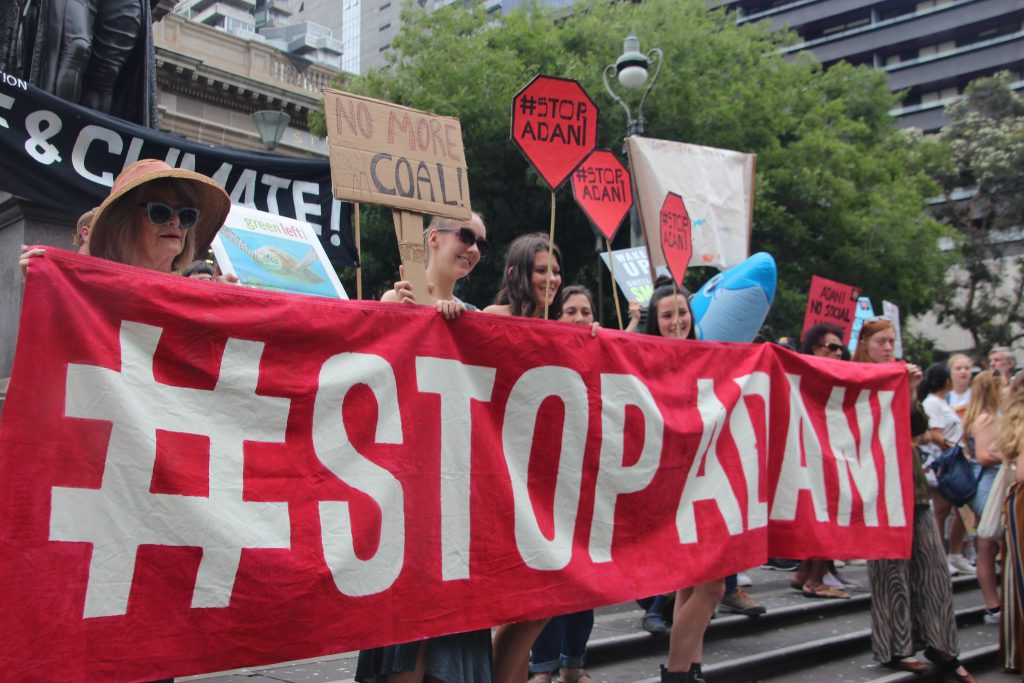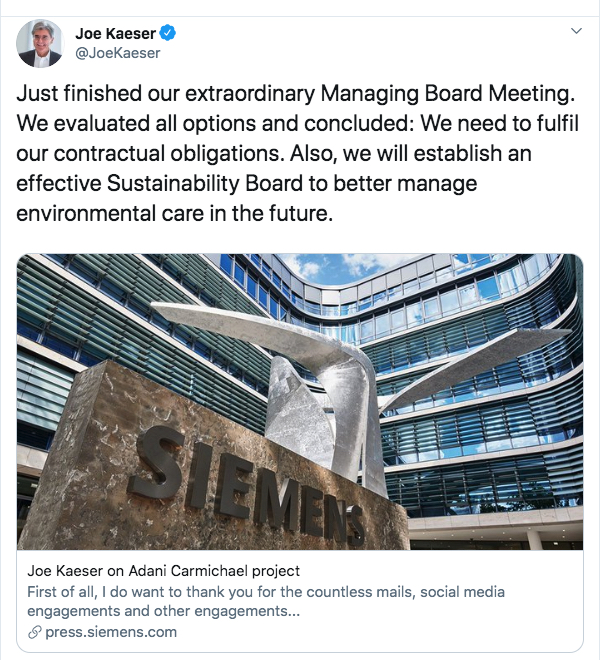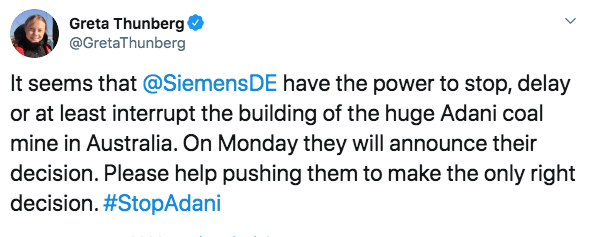Siemens to go ahead with Aussie coal mine contract despite pressure

German engineering giant Siemens will honor a controversial contract to supply signalling systems to Adani’s Carmichael coal mine in Australia, despite being under fire for the project’s alleged climate implications.
“We have just finished our extraordinary meeting … We have evaluated all the options and have concluded that we must fulfil our contractual obligations,” chief executive, Joe Kaeser, tweeted late on Sunday.

He also vowed that Siemens, which supports the Paris climate agreement to curb carbon emissions, would create a body to better “manage in the future the questions of protecting the environment.”
The decision on the contract, reportedly worth 20 million euros ($22m), comes as Australia is dealing with an unprecedented fire crisis that has claimed at least 27 lives, destroyed more than 2,000 homes, burnt millions of hectares of unique habitat and killed more than a billion animals.
“Siemens’ announcement that it will continue working on Adani’s coal mine while bushfires rage in Australia is nothing short of shameful,” environmental lobby group Australian Conservation Foundation said in a statement. “The company has shown its true colours with this decision. It has a climate change policy, but it is hollow and empty.”
Carmichael coal project, which has been scaled down since it was first announced, was approved by the government of Queensland in June 2019
Kaeser met last week with German activist Luisa Neubauer, offering the 23-year-old a seat on the supervisory board of Siemens Energy, which she turned down. Siemens Energy creates gas turbines and wind turbines, while the Adani contract will be supplied by Siemens Mobility, a different division.
The executive noted there were competitors to the railway signalling contract the company signed in December, which meant “whether or not Siemens provides the signalling, the project will still go ahead.”
Swedish climate activist, Greta Thunberg, said last week that Siemens had “the power to stop, delay or at least interrupt the building of the huge Adani coalmine in Australia” and people should push the company “to make the only right decision.”
The controversial project, which has been scaled down since it was first announced, was approved by the state government in June 2019 after a near decade-long struggle with regulators and environmental protesters.

Carmichael has battled a string of lawsuits from environmental groups and scientists, who argue it will contribute to global warming and damage Australia’s Great Barrier Reef.
According to official estimations, Carmichael will contribute $2.97 billion each year to Queensland’s economy and will create 1,500 direct and 6,750 indirect jobs during ramp up and construction.
Thermal coal is one of the largest sources of greenhouse gas emissions. If burnt, output from Carmichael would release 700m tonnes of carbon dioxide into the atmosphere every year for more than 50 years.
Another six coal projects in the Galilee are awaiting approval and are seen following Carmichael if Adani builds infrastructure to connect it to the state’s rail network.
{{ commodity.name }}
{{ post.title }}
{{ post.date }}




Comments
Andrés sorribes
Ulrich beck, risk society, predicted future 30 years ago in his book is becoming present and nobody escapes from that sadly…???